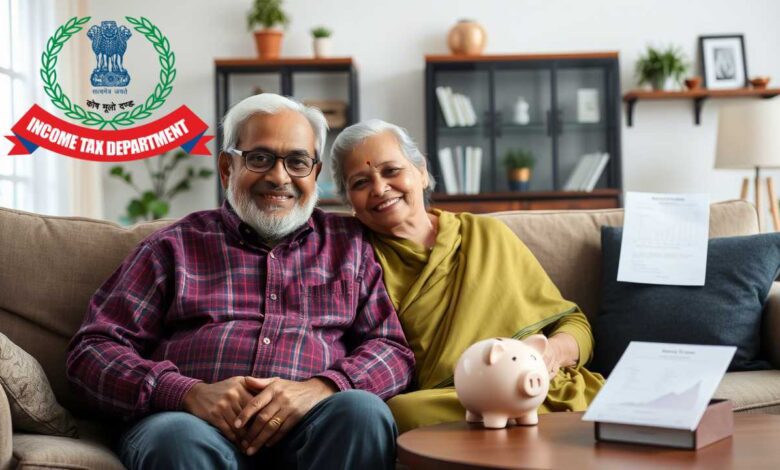Income Tax Benefits for Retired Employees, New Notification of ITAX Department

Income Tax: Retirement marks a new chapter, and understanding the tax implications of your hard-earned savings is crucial for financial peace of mind. The Indian Income Tax Department offers several benefits to retired employees, helping them reduce their tax burden and enjoy their post-retirement life more comfortably. This guide breaks down the key tax advantages available on various retirement components like gratuity, pension, leave encashment, and Provident Fund.
Key Tax Reliefs for Retired Individuals:
- Gratuity: For government employees, gratuity received upon retirement is entirely exempt from income tax. For other employees covered under the Payment of Gratuity Act, 1972, gratuity is tax-exempt up to a certain limit as specified by the Act.
- Pension: The monthly pension received is taxable under the head ‘Salaries’. However, retirees can claim a standard deduction. Under the old tax regime, this deduction is up to ₹50,000. In the new tax regime (from AY 2024-25), a standard deduction of ₹50,000 from pension income is also available (enhanced to ₹75,000 from AY 2025-26 onwards).
- Commutation of Pension (Lump-sum Pension): Government employees who opt to receive a lump-sum amount by commuting a portion of their pension get this amount fully exempt from tax. For non-government employees, specific conditions and limits apply for tax exemption on commuted pension.
- Leave Encashment: Central and State Government employees enjoy full tax exemption on the amount received for encashing their unutilized earned leave at the time of retirement. For non-government employees, leave encashment is exempt up to a certain limit, which has recently been increased by the government.
- Provident Fund (PF): Generally, the accumulated balance and interest from a recognized Provident Fund, withdrawn at the time of retirement, are tax-free, provided certain conditions (like continuous service for five years) are met.
- Basic Exemption Limit: Under the old tax regime, senior citizens (aged 60 to 80 years) have a higher basic tax exemption limit of ₹3 lakh, and super senior citizens (above 80 years) have an exemption limit of ₹5 lakh. Under the new tax regime the basic exemption limit is ₹4 lakh for all individuals, with no specific age-based increase.
- No Advance Tax Liability: Resident senior citizens (60 years or older) who do not have any income from business or profession are not required to pay advance tax. Their tax liability is settled through self-assessment tax.
- Family Pension: Pension received by family members after the demise of the employee is taxed under ‘Income from other sources’. A deduction of 1/3rd of the family pension or ₹15,000, whichever is less, is available.
Important Considerations:
It’s essential for retirees to be aware of these provisions under both the old and new tax regimes to make informed decisions. The Income Tax Department often releases brochures and guidelines to clarify these benefits. Consulting with a tax advisor can also help in optimizing tax liabilities during retirement. Proper planning can significantly enhance your financial well-being in your golden years.

